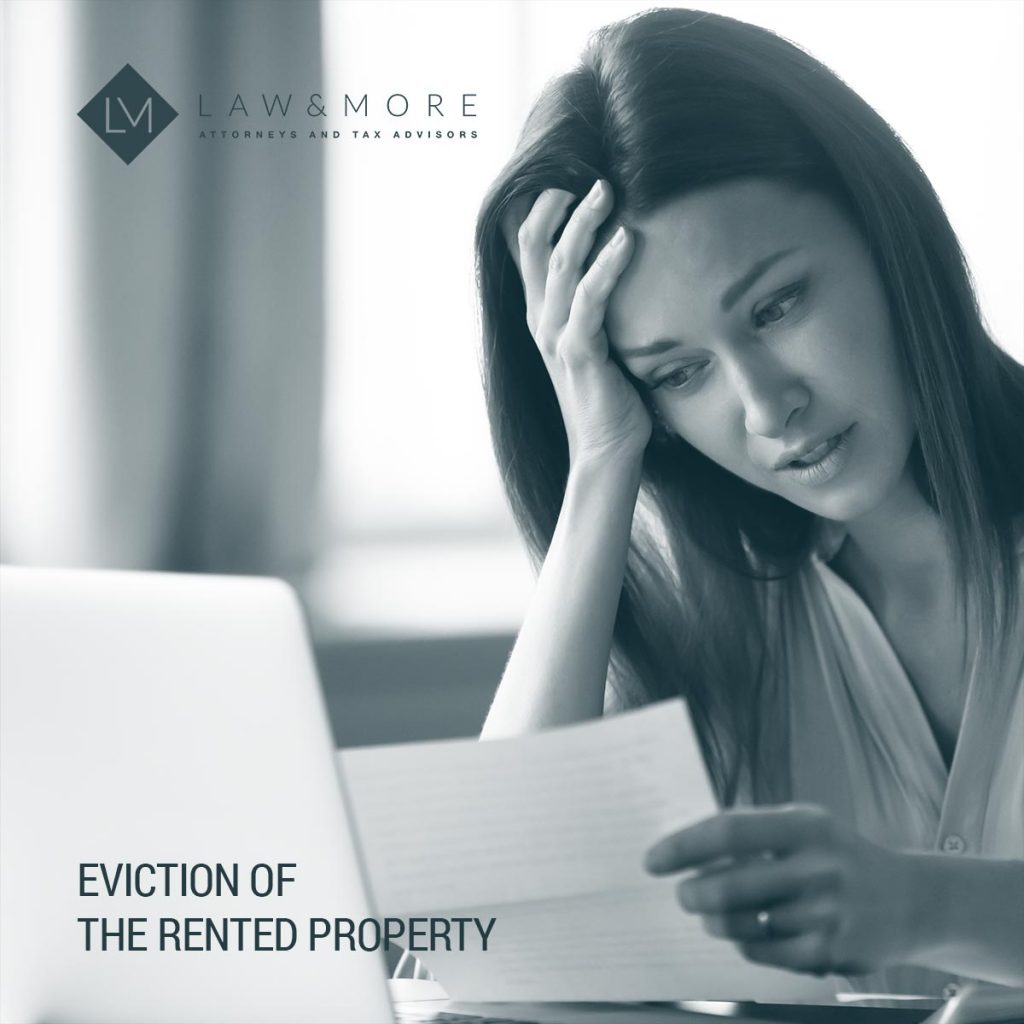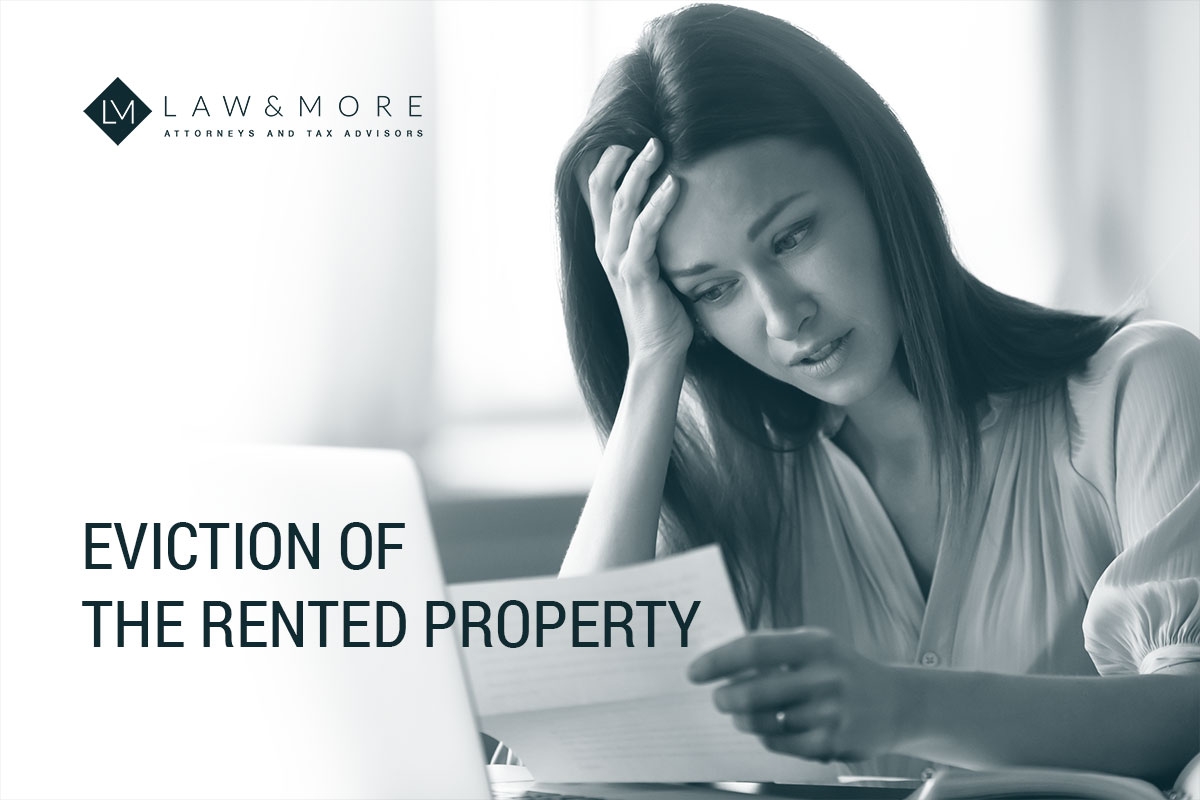Eviction is a drastic procedure for both the tenant and the landlord. After all, upon eviction, the tenants are forced to leave the rented property with all their belongings, with all its far-reaching consequences. The landlord may therefore not simply proceed with eviction if the tenant fails to fulfil his obligations under the rental contract. Although eviction is not explicitly regulated by law, strict rules do apply to this procedure.
In order to be able to proceed with eviction, the landlord must receive an eviction order from the court. This court order includes permission to have the rented property evicted on a date determined by the court. If the tenant does not agree with the eviction order, the tenant can appeal against this court order . Lodging an appeal usually suspends the effect of the court order and thus eviction, until the appeal court has decided on this. However, if the eviction order of has been declared enforceable by the court, the tenant’s appeal will not lead to suspension and the landlord can proceed with eviction. This course of events does pose a risk to the landlord if the appeal court decides otherwise on eviction.
Before the court grants permission for eviction, the landlord must have terminated the rental contract. The landlord can terminate through the following methods:
Dissolution
For this method of termination, there must be a shortcoming of the tenant in the fulfilment of his obligations from the relevant rental contract, in other words default. This is the case if the tenant, for example, creates a rent arrears or causes unlawful nuisance. The tenant’s shortcoming must be sufficient so that dissolution of the rental contract is justified. If the rented property concerns a residential space or a medium-sized business space, the tenant will enjoy protection in the sense that dissolution can only take place through the court procedure.
Cancellation
This is another way of termination. The requirements that the landlord must meet in this context depend on the type of rented property. If the rented property concerns a residential space or a medium-sized business space, the tenant benefits from protection in the sense that the cancellation only takes place on a number of exhaustive grounds as referred to in Article 7:274 and 7:296 of the Dutch Civil Code. One of the grounds that can be invoked in both cases is, for example, urgent personal use of the rented property. In addition, various other formalities, such as deadlines, must be observed by the landlord.
Is the rented space other than living space or medium-sized business space, namely a 230a business space? In that case, the tenant does not enjoy rental protection as referred to above and the landlord can effect termination of the rental contract relatively quickly and easily. However, this in no way applies to eviction. After all, a tenant of a so-called 230a business space is entitled to eviction protection under Article 230a of the Dutch Civil Code in the sense that the tenant can request an extension of the eviction period by a maximum of one year within two months of the written notice of eviction. Such a request can also be made to the tenant who has already left or vacated the rented space. If the tenant has filed a request for an extension of the eviction period, the assessment of this request will be made with a balance of interests. The court will grant this request if the interests of the tenant are seriously damaged by eviction and must outweigh the interests of the landlord to use the rented property. If the court rejects the request, no appeal or cassation is open to the tenant against this decision. This is only different if the court has wrongly applied or has not applied Article 230a of the Dutch Civil Code.
If the landlord has correctly completed all the necessary steps in the eviction procedure and the court grants his permission to evict the rented property, this does not mean that the landlord may proceed with eviction himself. If he does, the landlord will often act unlawfully towards the tenant, so that the tenant can claim compensation in that case. The court’s permission only means that the landlord may have the rented property evicted. This means that the landlord must employ a bailiff for eviction. The bailiff will also serve the eviction order to the tenant, giving the tenant a last chance to leave the rented property himself. If the tenant does not do this, the costs for actual eviction will be borne by the tenant.
Do you have questions about or do you need legal assistance in the eviction procedure? Please contact Law & More. Our lawyers are experts in the field of tenancy law and are happy to provide you with advice and / or assistance in the eviction procedure.

